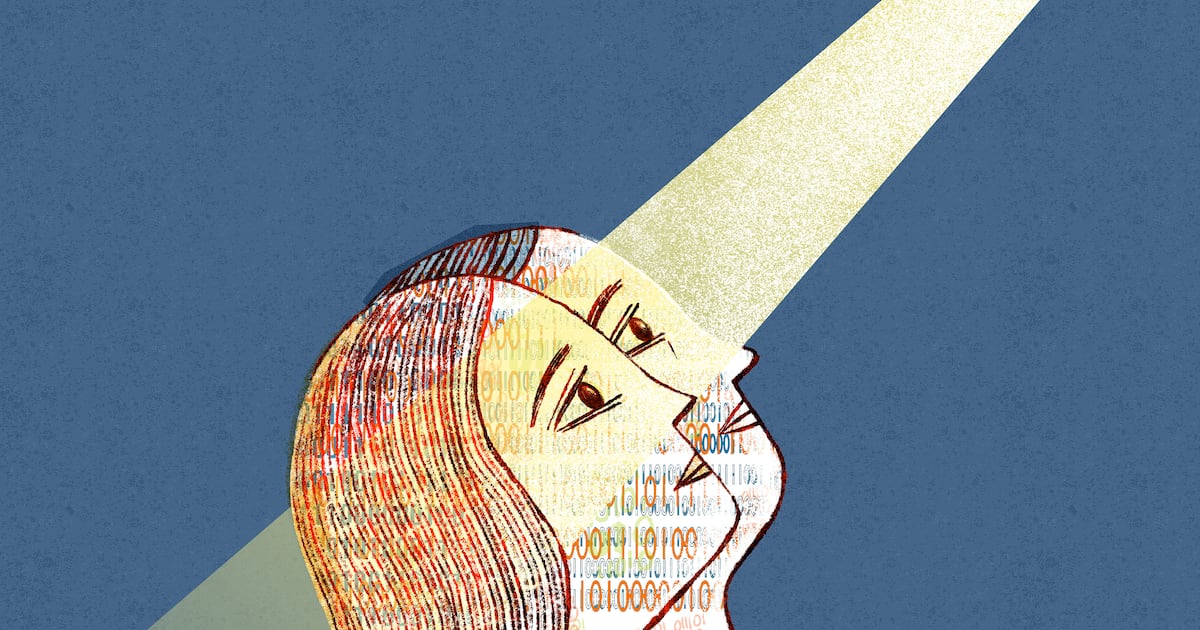Digital Deity: When Algorithms Become Prophets
Religion
2025-04-15 20:22:17Content

In the rapidly evolving landscape of artificial intelligence, an unexpected intersection emerges between technological innovation and spiritual understanding. The convergence of faith and intelligence reveals profound insights into how we perceive consciousness, ethics, and human potential.
Modern AI development is no longer just a technical endeavor, but a philosophical journey that challenges our fundamental understanding of intelligence. Researchers and philosophers are increasingly recognizing that intelligence isn't merely about computational power, but about deeper, more nuanced qualities of awareness and interconnectedness.
Faith traditions offer unique perspectives on intelligence that transcend traditional algorithmic thinking. They suggest that true intelligence encompasses empathy, compassion, and a holistic understanding of existence. These spiritual insights encourage AI developers to consider not just what machines can do, but the deeper implications of creating systems that might one day approach sentience.
Ethical considerations in AI are deeply rooted in philosophical and spiritual principles. Concepts of universal respect, human dignity, and interconnectedness from various faith traditions provide critical frameworks for developing responsible and compassionate artificial intelligence. These principles guide us toward creating technologies that enhance rather than diminish human experience.
As we stand at the frontier of a new technological era, the dialogue between faith, philosophy, and artificial intelligence becomes increasingly crucial. By embracing a more holistic approach, we can develop intelligent systems that reflect the best of human wisdom, empathy, and potential.
The future of intelligence is not just about computational complexity, but about understanding consciousness itself—a journey that bridges technology, spirituality, and our deepest human aspirations.
Spiritual Algorithms: The Convergence of Faith and Artificial Intelligence
In an era of unprecedented technological transformation, the intersection of spiritual wisdom and cutting-edge artificial intelligence represents a profound philosophical frontier that challenges our traditional understanding of consciousness, ethics, and human potential. As machine learning algorithms become increasingly sophisticated, researchers and thought leaders are exploring how deeply held spiritual principles might inform and guide the development of intelligent systems.Navigating the Ethical Landscape of Intelligent Technologies
The Moral Compass of Machine Intelligence
The emergence of artificial intelligence demands a radical reimagining of ethical frameworks. Traditional technological development has often prioritized efficiency and capability over moral considerations, but spiritual traditions offer nuanced perspectives on consciousness, empathy, and interconnectedness that could fundamentally reshape how we conceive intelligent systems. Philosophical traditions from Buddhism, Christianity, Islam, and indigenous wisdom traditions provide rich conceptual resources for understanding intelligence beyond mere computational power. These traditions emphasize holistic understanding, compassion, and the intrinsic dignity of all sentient beings—principles that could serve as foundational guidelines for AI development.Consciousness and Computational Complexity
Modern neuroscience and quantum physics are increasingly revealing the limitations of purely materialistic models of consciousness. Spiritual traditions have long argued that consciousness transcends mechanical processes, suggesting that intelligence might be more than algorithmic computation. Researchers are now exploring how contemplative practices like meditation might offer insights into non-linear cognitive processes. The deep introspective techniques developed over millennia could provide novel approaches to understanding machine learning, potentially revealing new paradigms of artificial intelligence that integrate emotional intelligence and ethical reasoning.Ethical Frameworks for Technological Evolution
The integration of spiritual wisdom with technological innovation offers a promising pathway for developing more responsible and compassionate intelligent systems. By incorporating principles of empathy, interconnectedness, and holistic understanding, we can create AI technologies that respect human dignity and promote collective well-being. Interdisciplinary collaborations between computer scientists, philosophers, theologians, and contemplative practitioners are emerging as crucial spaces for reimagining technological development. These dialogues challenge reductive technological narratives and propose more nuanced, contextually sensitive approaches to artificial intelligence.Transformative Potential of Spiritually-Informed Technologies
As artificial intelligence continues to evolve, the infusion of spiritual wisdom could represent a transformative approach to technological development. By recognizing the profound interconnectedness of all systems and embracing a more holistic understanding of intelligence, we can create technologies that not only solve complex problems but also contribute to human flourishing. The convergence of faith and artificial intelligence is not about replacing human experience with technological systems, but about expanding our collective understanding of consciousness, ethics, and potential. It represents a profound opportunity to develop more compassionate, contextually aware, and ethically grounded intelligent technologies.RELATED NEWS
Religion

Explosive Trailer: Vimal's 'Paramasivan Fathima' Ignites Heated Debate on Religious Tensions and Social Fault Lines
2025-03-16 09:37:00
Religion

Faith and Influence: How American Religious Movements Shape National Discourse
2025-03-15 21:50:00
Religion

Echoes of Conscience: How a Monsignor's Forgotten Archives Sparked Modern Activism
2025-04-29 18:58:22





